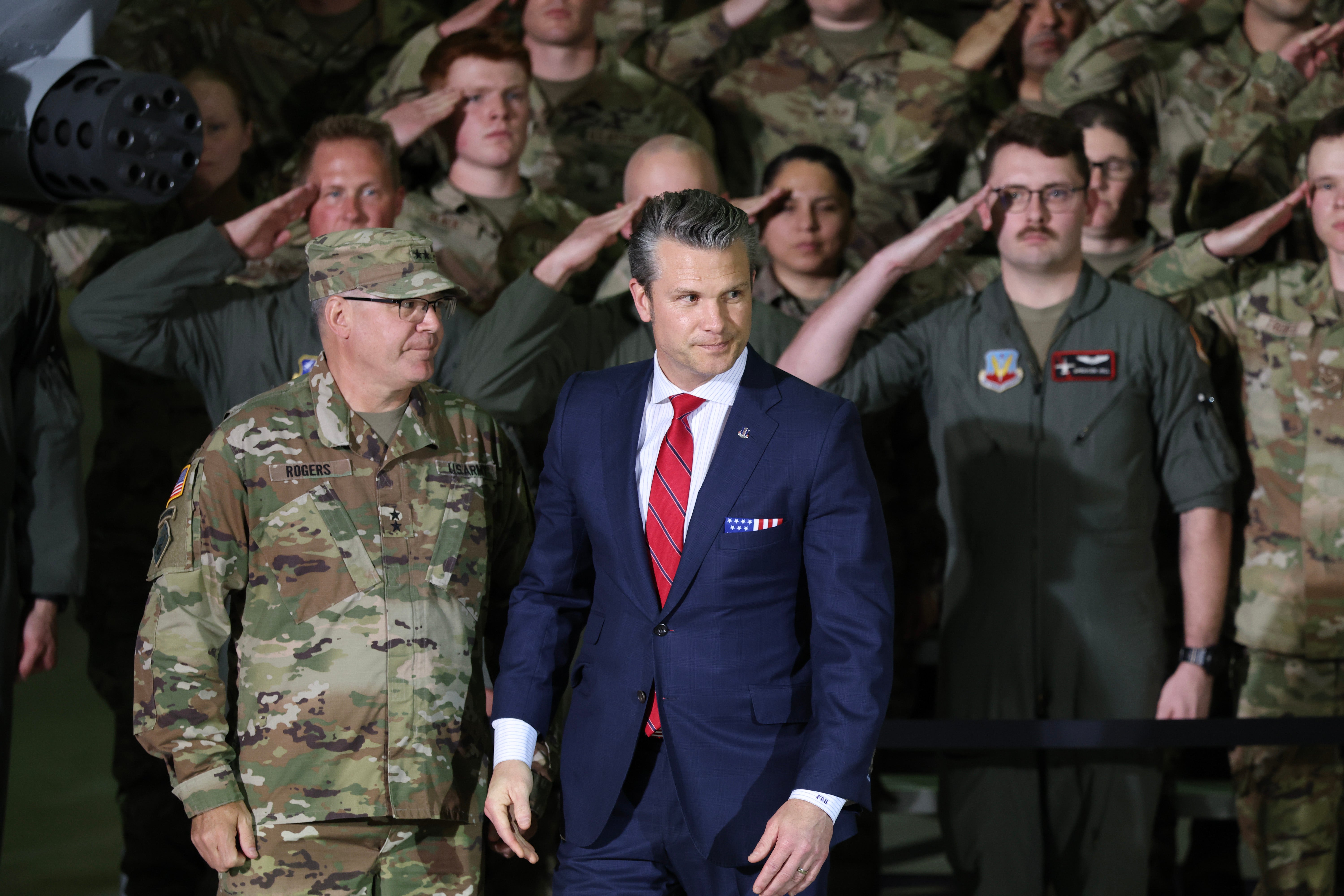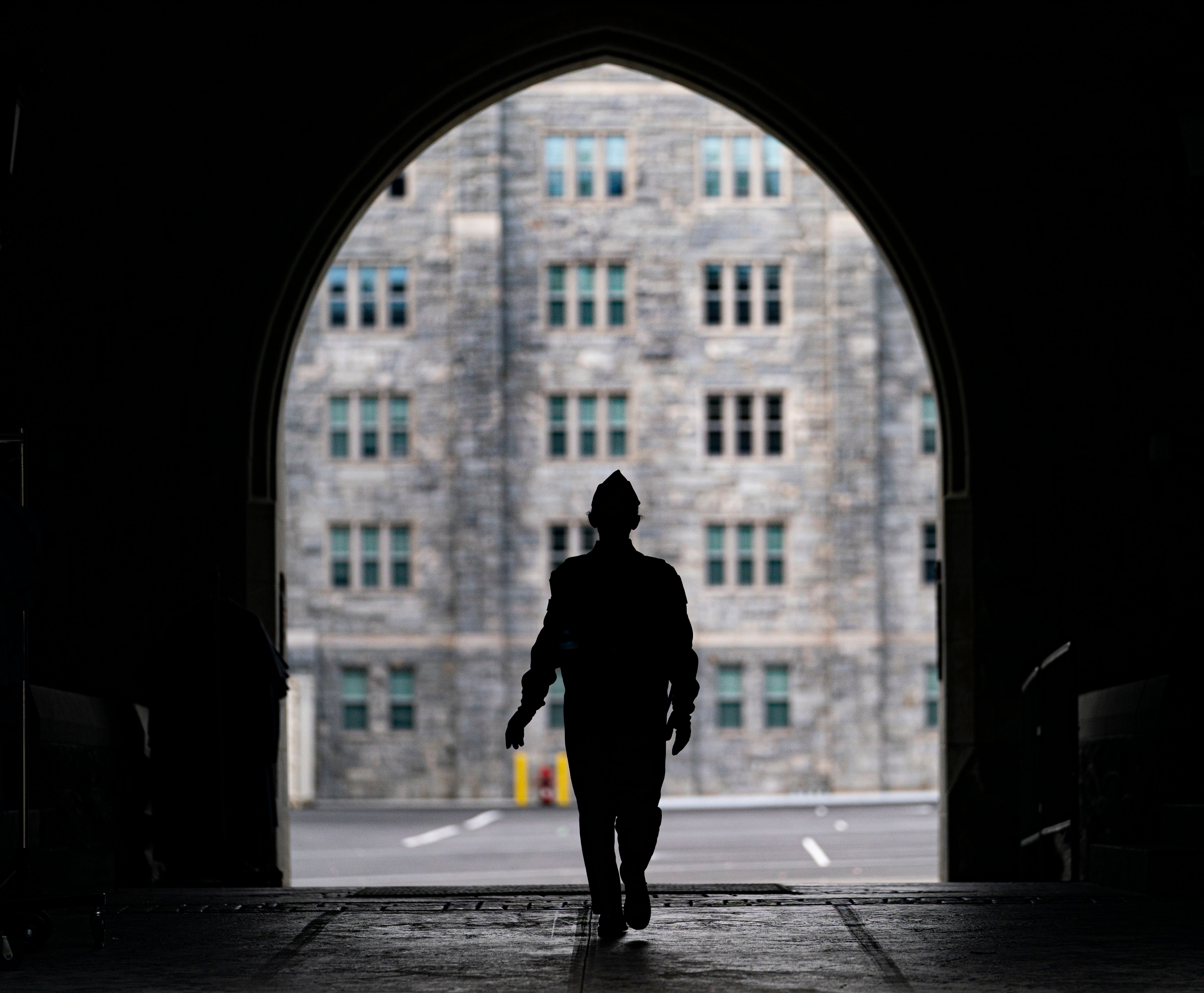Former faculty at the U.S. military’s prestigious service academies say they faced de facto book bans, shuttered courses and majors, and academic censorship in the face of political pressure from the Trump administration.
In the early days of the administration, the president signed an executive order that the academies, such as West Point and the U.S. Naval Academy, were barred from “promoting, advancing or otherwise inculcating” ideas deemed “un-American” including “gender ideology” and the idea that “America’s founding documents are racist or sexist.”
Defense Secretary Pete Hegseth soon joined in, ordering that ideas including critical race theory, diversity and inclusion, could not even be taught at the military schools, which educate the armed forces’ elite officer class.
The push to strip such topics, especially gender, from military circles aligned with Hegseth’s longstanding argument, even before he was confirmed, that the military’s masculine “warrior ethos” was being hemmed in by unnecessary civilian oversight and left-leaning academic ideas, as well as his past comments that women should not be in combat roles.
The impact of these orders was soon felt on campus.

At West Point, history classes on gender and race and ethnicity were canceled, while the sociology major was dissolved. Professors were forced to remove works from James Baldwin, Toni Morrison, and other writers of color.
Dr. Graham Parsons, a professor of philosophy at West Point, whose work interrogates the intersection of gender and the military, said supervisors told him to get rid of readings about feminism and white supremacy from a required ethics course for cadets, while a student debate team was allegedly barred from taking certain positions.
“These were brazen demands to indoctrinate, not educate,” Parsons wrote in a May op-ed in The New York Times, announcing his resignation.
“You will not be missed Professor Parsons,” Hegseth said on X of the scholar’s departure.

A spokesperson for West Point said earlier this year that personnel there must abide by military regulations and policy, and that changes underway are “in no way unique to the current administration.”
Elsewhere, West Point disbanded identity-aligned clubs like the National Society of Black Engineers and Society of Women Engineers, while hundreds of books were removed from the Naval Academy library in April as part of the Defense Department’s purge of DEI-related material.
At least 25 civilian officials have left the Air Force Academy, which has reportedly frozen pay increases for civilians and floated plans for firing as many as 100, despite the Pentagon’s historic $1 trillion budget under Trump.
Taken together, the changes have some inside the military education system worried that future graduates will not have the well-rounded mindset needed to lead the armed forces thoughtfully.

“I’m concerned about the students here,” Brian Johns, a systems engineering professor who left the Air Force Academy after he was slated to be fired under a Trump administration directive looking to cut probationary employees, told Politico. “What are they being left with?”
Even before Trump took office, some feared an academic chill was settling over the military’s elite centers of higher education, pointing to instances like the sudden cancellation, in the weeks before the election, of a lecture by fascism scholar Ruth Ben-Ghait at the Naval Academy.
Conservatives railed against the planned talk, accusing Ben-Ghait of being an unacceptable partisan, even as the lecture only planned to touch on historical strongmen like Augusto Pinochet and Benito Mussolini.
“A small purge was orchestrated, to make sure the Naval Academy fell into line when Trump got back into office and the real purges could take place.” she wrote on her Substack in February of the decision.
“It was a loyalty test for the Naval Academy, and they passed it, but Trump and Hegseth will surely be back for more.”



